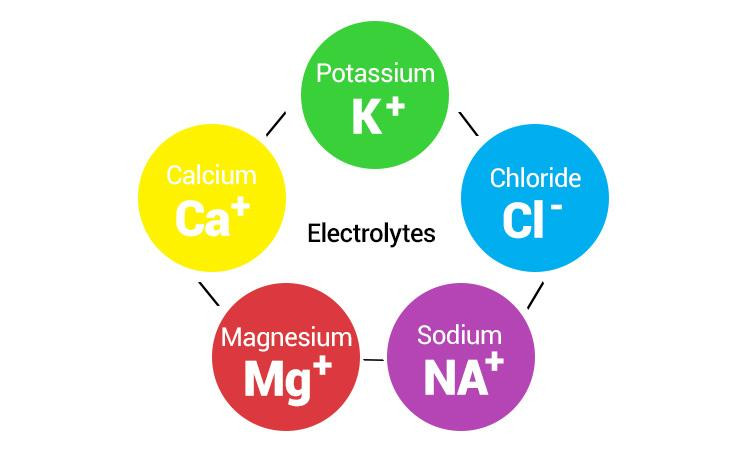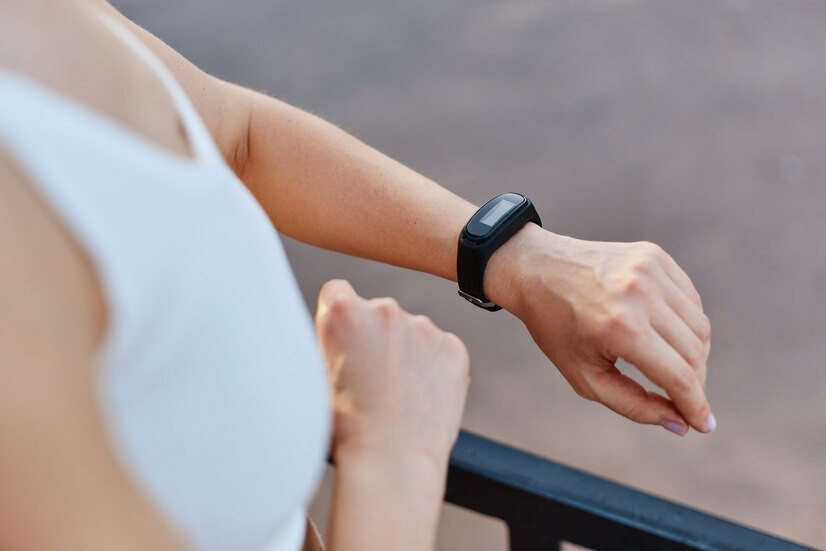Definisi
Dehidrasi merupakan kondisi atau istilah medis yang digunakan ketika tubuh kita menggunakan atau mengeluarkan cairan lebih dari yang kita minum atau konsumsi. Jika kita tidak mencukupi kebutuhan cairan harian kita, kita akan rentan mengalami dehidrasi. Setiap orang dapat terkena dehidrasi, namun kondisi dehidrasi dapat menjadi berbahaya terutama jika terjadi pada anak-anak dan lansia. Dehidrasi dibagi menjadi dehidrasi ringan, sedang dan berat berdasarkan gejala yang muncul. Pada dehidrasi ringan dan sedang, umumnya Anda dapat mengatasinya sendiri tanpa harus ke rumah sakit.
Penyebab terbanyak dehidrasi pada anak anak adalah diare berat dan muntah. Pada lansia, penyebab terbanyak dari dehidrasi karena kurang cairan dan mengonsumsi obat-obatan yang dapat menyebabkan terbuangnya cairan tubuh secara berlebihan sehingga menyebabkan dehidrasi. Penyakit yang sederhana seperti infeksi pada paru-paru maupun saluran kemih juga dapat menyebabkan dehidrasi pada orang dewasa. Dehidrasi juga sering terjadi dalam kondisi cuaca yang panas terutama ketika Anda sedang berolahraga.
Penyebab
Terkadang, dehidrasi terjadi akibat kejadian yang sederhana seperti tidak minum cukup air disertai aktivitas fisik yang meningkat, namun dapat juga dikarenakan penyakit yang mendasari. Ada beberapa penyebab seseorang terkena dehidrasi, antara lain:
- Gastroenteritis. Gastroenteritis merupakan penyakit saluran pencernaan yang memiliki gejala berupa diare dan terkadang disertai muntah. Kedua kondisi ini menyebabkan tubuh kekurangan cairan terutama jika tidak diimbangi dengan konsumsi cukup cairan
- Demam. Demam atau peningkatan suhu tubuh sering menyebabkan kondisi dehidrasi. Pada umumnya, semakin tinggi suhu tubuh Anda, maka resiko Anda mengalami dehidrasi akan meningkat
- Keringat yang berlebihan. Anda bisa kehilangan cairan ketika Anda berkeringat secara berlebihan. Jika aktivitas yang Anda lakukan terlalu berat dan kurang mengonsumsi cairan maka Anda dapat mengalami dehidrasi. Cuaca terik juga dapat meningkatkan risiko terkena dehidrasi
- Buang air kecil yang berlebihan. Hal ini dapat disebabkan oleh penyakit yang tidak terdiagnosa atau diabetes yang tidak terkontrol. Beberapa obat-obatan, seperti diuretik dan beberapa obat darah tinggi dapat menyebabkan dehidrasi akibat obat ini dapat membuat Anda kekurangan cairan akibat lebih sering buang air kecil
Faktor Risiko
Setiap orang dapat berisiko untuk terkena dehidrasi, namun beberapa faktor ini meningkatkan risiko dehidrasi:
- Bayi dan anak anak. Anak anak dan bayi merupakan rentang usia yang berisiko mengalami gangguan saluran pencernaan seperti diare maupun muntah, rentan terkena dehidrasi. Kelompok usia ini memiliki luas permukaan tubuh yang lebih rendah, sehingga apabila mengalami demam lebih cepat terkena dehidrasi. Selain itu, anak-anak seringkali tidak menyadari rasa haus dan tidak sadar apabila mereka membutuhkan konsumsi air mencukupi
- Usia lanjut. Pada lansia, rasa haus akan berkurang akibatnya orang tua sering mengalami dehidrasi karena kurangnya konsumsi air harian. Masalah ini biasanya ditambah dengan penyakit kronis yang diderita seperti diabetes dan demensia, serta konsumsi obat-obatan rutin yang dapat memengaruhi frekuensi berkemih. Orang lansia juga akan mengalami mobilitas yang rendah sehingga sulit untuk mengambil air sendiri
- Menderita penyakit kronis. Penyakit kronis seperti diabetes yang tidak terkontrol dapat meningkatkan risiko terkena dehidrasi
- Pekerjaan lapangan atau aktivitas luar ruangan. Ketika cuaca kering dan panas, risiko untuk terkena dehidrasi juga akan meningkat. Hal ini diakibatkan oleh penguapan air lebih cepat terjadi
Gejala
Haus tidak selalu menjadi parameter bahwa tubuh Anda sedang membutuhkan cairan. Banyak orang, terutama lansia, tidak merasakan haus padahal sedang dalam kondisi dehidrasi. Kesadaran diri penting untuk selalu mengonsumsi cairan sesuai kebutuhan cairan harian terutama jika beraktivitas di luar ruangan yang panas. Ada beberapa gejala dan tanda yang muncul ketika Anda terkena dehidrasi pada kelompok usia tertentu:
Bayi dan anak anak:
- Mulut dan lidah kering
- Tidak ada air mata ketika nangis
- Tidak ada cairan di popok
- Mata dan pipi menjadi cekung
- Bagian ubun ubun menjadi cekung
- Rewel atau terlihat lemas
Dewasa:
- Haus yang berlebihan
- Kurangnya frekuensi buang air kecil
- Urin menjadi lebih gelap
- Kelelahan
- Pusing
- Kebingungan
Diagnosis
Dokter anda akan bertanya mengenai gejala dehidrasi, riwayat penyakit dan akan melakukan beberapa pemeriksaan fisik. Tanda-tanda vital akan diperiksa seperti tekanan darah, denyut jantung dan suhu. Tekanan darah rendah disertai denyut jantung meningkat merupakan tanda-tanda kegawatan yang menunjukkan terjadinya syok. Suhu tubuh dingin juga merupakan pertanda perlunya penanganan segera.
Untuk memastikan diagnosa dokter harus melakukan beberapa pemeriksaan penunjang yaitu:
- Tes Darah. Sampel darah akan memeriksa apakah anda mengalami ketidakseimbangan elektrolit terutama kadar natrium dan kalium. Dokter juga mungkin akan melihat kondisi ginjal Anda
- Tes urine akan membantu dokter menentukan derajat dehidrasi anda dan juga dapat melihat tanda-tanda infeksi saluran kemih
Tata Laksana
Satu-satunya cara untuk menangani dehidrasi adalah mengganti cairan yang telah Anda keluarkan dan juga mengganti elektrolit yang hilang. Penanganan dehidrasi bergantung terhadap derajat keparahan, umur dan penyebab dehidrasi itu sendiri. Untuk anak anak dan anak bayi yang dehidrasi akibat diare, muntah atau demam, gunakan cairan larutan garam bercampur air. Larutan ini akan mengganti cairan dan elektrolit pada anak Anda. Mulai dengan 1 sendok teh setiap 1 sampai 5 menit. Hal ini akan mudah jika anda menggunakan syringe untuk bayi yang terlalu kecil. Untuk dewasa dengan dehidrasi ringan dan sedang yang mengalami diare, muntah atau demam, anda dapat memberikan air atau cairan lainya seperti jus buah buahan. Pada dehidrasi yang sudah disertai dengan penurunan kesadaran atau kebingungan, segera bawa ke rumah sakit untuk mendapatkan cairan dari infus.
Komplikasi
Dehidrasi jika disepelekan akan mengakibatkan komplikasi yang serius, seperti:
- Heat exhaustion. Jika Anda tidak minum cukup air ketika olahraga berat dan berkeringat yang berlebihan, Anda dapat mengalami heat injury. Beberapa gejala yang dapat dirasakan seperti mengalami kram, kelelahan berlebihan, sakit kepala kelelahan dan dapat menjadi heat stroke yang mengancam nyawa
- Permasalahan buang air kecil dan gangguan ginjal. Dehidrasi yang berulang dan dalam waktu yang panjang dapat menyebabkan infeksi saluran kemih, batu ginjal bahkan gagal ginjal karena kerusakan sel-sel ginjal dan penurunan fungsi filtrasi
- Kekurangan elektrolit seperti natrium dan kalium merupakan elektrolit yang berfungsi untuk mengantarkan sinyal dari sel ke sel. Jika elektrolit tersebut tidak seimbang. Anda tidak memiliki kestabilan arus listrik dalan diri anda dan akan menyebabkan pergerakan yang tidak disadari pada otot rangka anda dan anda juga kemungkinan akan kehilangan kesadaran.
- Penyakit ini merupakan penyakit yang mengancam nyawa karena kurangnya oksigen yang diantarkan ke seluruh tubuh. Ketika syok, tekanan darah anda akan menurun drastis dan hal tersebut menyebabkan darah tidak dapat diantarkan ke seluruh tubuh dengan baik.
Pencegahan
Untuk mencegah dehidrasi, anda disarankan untuk minum air yang cukup dan mengonsumsi buah buahan dan sayiran yang mengandung banyak cairan. Jangan biarkan diri anda merasakan haus terlalu lama
Ada beberapa orang yang membutuhkan lebih banyak cairan pada kondisi tertentu seperti:
- Muntah dan diare. Jika anak Anda mengalami muntah atau diare, mulai berikan banyak air atau oralit. Jangan tunggu sampai anak Anda mengalami dehidrasi
- Olahraga yang berat. Pada umumnya, minum air sebelum olahraga berat merupakan langkah yang baik untuk mencegah dehidrasi. Warna urin merupakan indikator kondisi tubuh kekurangan cairan atau tidak. Ganti kehilangan cairan Anda secara berkala
- Lansia dengan arau tanpa riwayat penyakit. Perhatikan asupan cairan pada orang berusia lanjut dan ingatkan untuk selalu mengonsumsi cairan secara rutin. Diabetes yang tidak terkontrol juga sangat sering menyebabkan dehidrasi hingga kondisi yang mengancam nyawa
Kapan Harus ke Dokter?
Pada derajat diare yang ringan dan sedang umumnya Anda dapat mengatasinya sendiri dengan mengonsumsi cukup cairan, namun ketika ada tanda atau gejala berikut ini segera kunjungi dokter:
- Mengalami diare berat selama 1 hari atau lebih
- Gangguan kesadaran atau rewel pada anak
- Kebanyakan tidur dan kurang aktif dari sebelumnya
- Penurunan jumlah urin dan frekuensi berkemih
Mau tahu informasi seputar penyakit lainnya? Cek di sini, ya!
- dr. Benita Kurniadi
Taylor K. (2022). Adult dehydration. National Library of Medicine. Available from: https://www.ncbi.nlm.nih.gov/books/NBK555956/
Vega R.M. (2022). Pediatric dehyration. National Library of Medicine. Available from: https://www.ncbi.nlm.nih.gov/books/NBK436022/
Edmonds C.J. (2021). Dehydration in older people: a systematic review of the effect of dehydration. Archives of Gerontology and Geriatrics. Available from: https://www.sciencedirect.com/science/article/abs/pii/S0167494321000431












